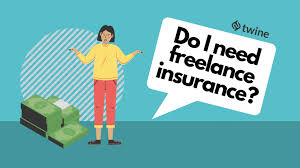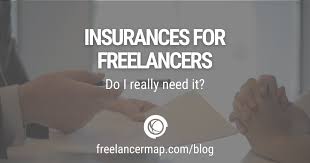
Insurance for Freelancers: What You Actually Need
Freelancing offers freedom—no boss, no office, no 9-to-5. But it also means no company benefits. And that includes insurance.
When you’re self-employed, you are the business, which means you have to protect your income, your health, your equipment, and your reputation. Still, many freelancers go without insurance simply because they don’t know what they actually need—or assume it’s too expensive.
Let’s fix that.
Here’s a clear, no-fluff guide to the essential insurance every freelancer should consider—and what you can skip.
1. Health Insurance: Non-Negotiable
Even if you’re young and healthy, a single accident or illness can lead to thousands in medical bills. And unlike employees, freelancers don’t have company-sponsored plans.
What to consider:
-
Marketplace plans (via your country’s health exchange or private insurers)
-
High-deductible plans with Health Savings Accounts (HSAs)
-
Freelancer union/group plans that may offer discounted rates
💡 Tip: If you’re based in the U.S., check for ACA subsidies—you might qualify even with variable income.
2. Disability Insurance: Your Backup Income
If you can’t work due to illness or injury, who pays your bills? That’s where disability insurance comes in.
Short-term disability covers a few months; long-term disability can cover years.
For freelancers, this may be even more important than life insurance—because your ability to earn is your most valuable asset.
3. Liability Insurance: If You Give Advice or Provide a Service
Say a client claims your work caused them financial loss—or you missed a key deadline that damaged their business. Professional liability insurance (also called errors & omissions or E&O insurance) can cover legal costs and settlements.
You especially need this if you:
-
Work with contracts
-
Offer expert advice (e.g., consultants, writers, designers, developers)
-
Could be sued for mistakes or missed deliverables
4. General Liability: Just in Case Someone Sues
General liability covers third-party injuries or property damage. It’s essential if:
-
You meet clients in person
-
You work in a shared space or co-working hub
-
You attend trade shows or events
It’s often bundled with professional liability at a discount.
5. Business Property or Equipment Insurance
Do you rely on a laptop, camera, tablet, or software to make a living? What happens if it’s stolen or damaged?
You can often add business equipment coverage to a renter’s or homeowner’s policy—or get a standalone policy for high-value gear.
This is a must for:
-
Photographers and videographers
-
Designers and illustrators
-
Remote workers and digital nomads
6. Cyber Liability Insurance: If You Handle Sensitive Data
Even solo freelancers can be hacked. If you store client data, manage online payments, or run a website, you’re a target.
Cyber liability insurance can cover:
-
Data breaches
-
Ransomware attacks
-
Legal costs and PR recovery
It’s becoming more common (and more necessary) in today’s digital world.
7. Life Insurance: Depends on Your Situation
If you have dependents or significant debt, term life insurance can offer financial security to your loved ones if something happens to you.
If you’re single and debt-free? You can probably skip it for now.
8. Other Optional Coverage
-
Commercial auto insurance – If you drive for work or use your car for business purposes.
-
Home office insurance – If your home-based business is excluded from your homeowners policy.
-
Business interruption insurance – Replaces income during unexpected closures (natural disasters, etc.).
9. Where to Find Freelancer Insurance
You’re not alone. Many organizations and platforms offer group or discounted plans for independent workers:
-
Freelancers Union (U.S.)
-
Next Insurance, Thimble, Hiscox – popular providers for small business coverage
-
Trade-specific organizations (like for creatives, tech, or consultants)
Compare quotes, read the fine print, and only buy what fits your actual risk level.
Final Thought
As a freelancer, you don’t need every type of insurance under the sun—but you do need protection tailored to how you earn and what you risk.
Think of insurance as an investment in your long-term freedom. With the right coverage, a medical emergency, a client dispute, or a broken laptop won’t derail your business—or your life.
Protect yourself like the boss you are. Because when you work for yourself, your safety net has to come from you.
